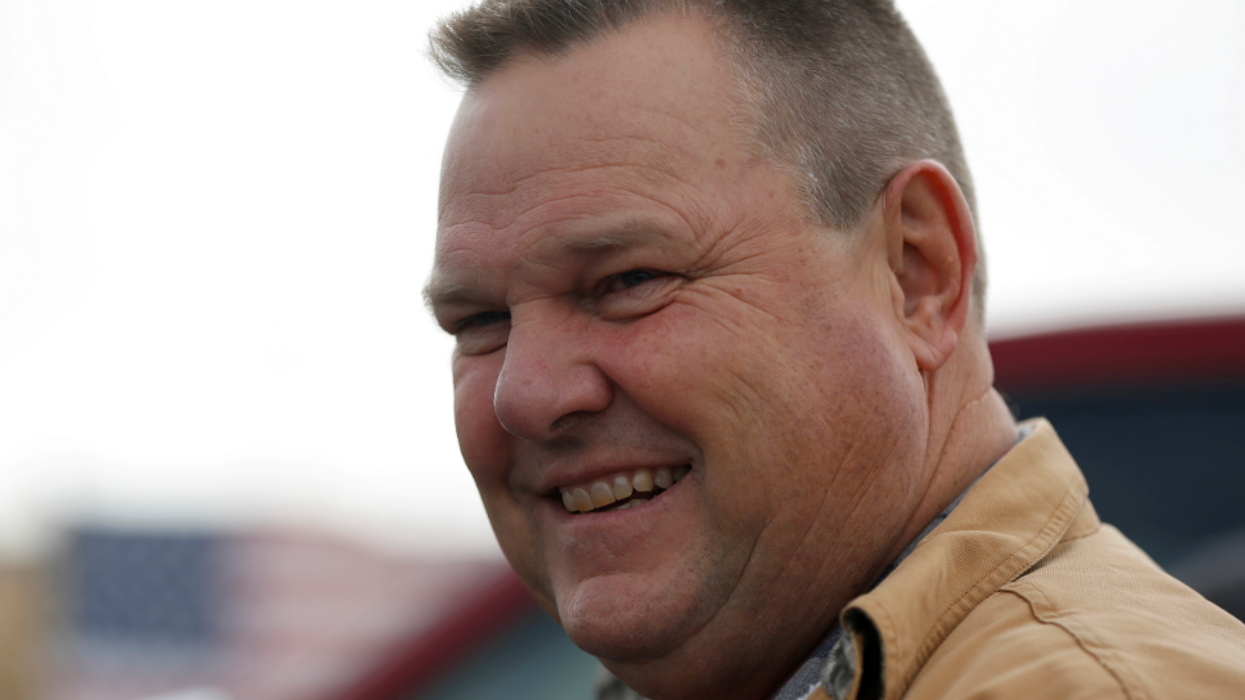A recent Marist poll for NPR and PBS NewsHour surveyed Americans' biggest concerns for the country's future, finding that "the rise of fascism and extremism" topped the list, at 31 percent of U.S. adults.
The partisan breakdown, as usual, was illuminating, with a plurality of Democrats and independents choosing the rise of fascism and extremism, at 47 percent and 32 percent respectively, as their primary concern.
The issue dominated with Democrats—nothing else even broke 20 percent. But among independents, "a lack of values" came in second at 24 percent with "becoming weak as a nation" just behind at 23 percent.
Republicans’ top two concerns were "a lack of values," at 36 percent, and "becoming weak as a nation," at 30 percent, while the rise of fascism was a distant third at 15 percent.
Notably, 35 percent of those who cited rising fascism and extremism as their top concern said they are "definitely voting in November's election." Meanwhile, a lack of values and the nation becoming weak stayed static among “definite” voters at 24 percent and 21 percent, respectively.
Simply put, the rise of fascism and extremism is the most concerning to Americans, particularly those who are "definite" voters, and the feeling is most pronounced among potential Democratic voters (i.e. Democrats and independents). On the other hand, it is not a primary motivation for Republican voters.
Additionally, the survey's findings suggest that abortion could be a more powerful issue than some analysts suggest because of GOP abortion bans sweeping the South. These bans serve as a real-life example of the loss of freedoms and autonomy associated with fascists and autocratic regimes.
While attendees of this year’s Conservative Political Action Conference are outright welcoming "the end of democracy," the GOP’s quashing of abortion care in an entire region of the country serves as a tangible reminder of what an end to democracy means.
Among analysts, the economy and immigration are often touted as the two main policy issues driving the election, with abortion lagging, polled separately, or even excluded from the issue polling.
That was also the case in the 2022 midterms, when Democrats were supposed to be swept away by a red wave but instead wildly outperformed expectations.
In October 2022, a Civiqs poll showed exactly why analysts misread the issues that would dominate the election. While 58% of voters overall chose the "economy/jobs/inflation" as their top issue, the partisan breakdown of issues showed that 52% of Democrats chose abortion as their No. 1 issue while 43 percent said "fair elections/democracy" was their No. 2 issue.
These two issues proved to be decisive and incredibly motivating among Democratic voters' and some independents who turned out to beat back the red wave.
The latest Marist polling suggests that anyone who underestimates them in this election does so at their own peril.
Reprinted with permission from Daily Kos.


